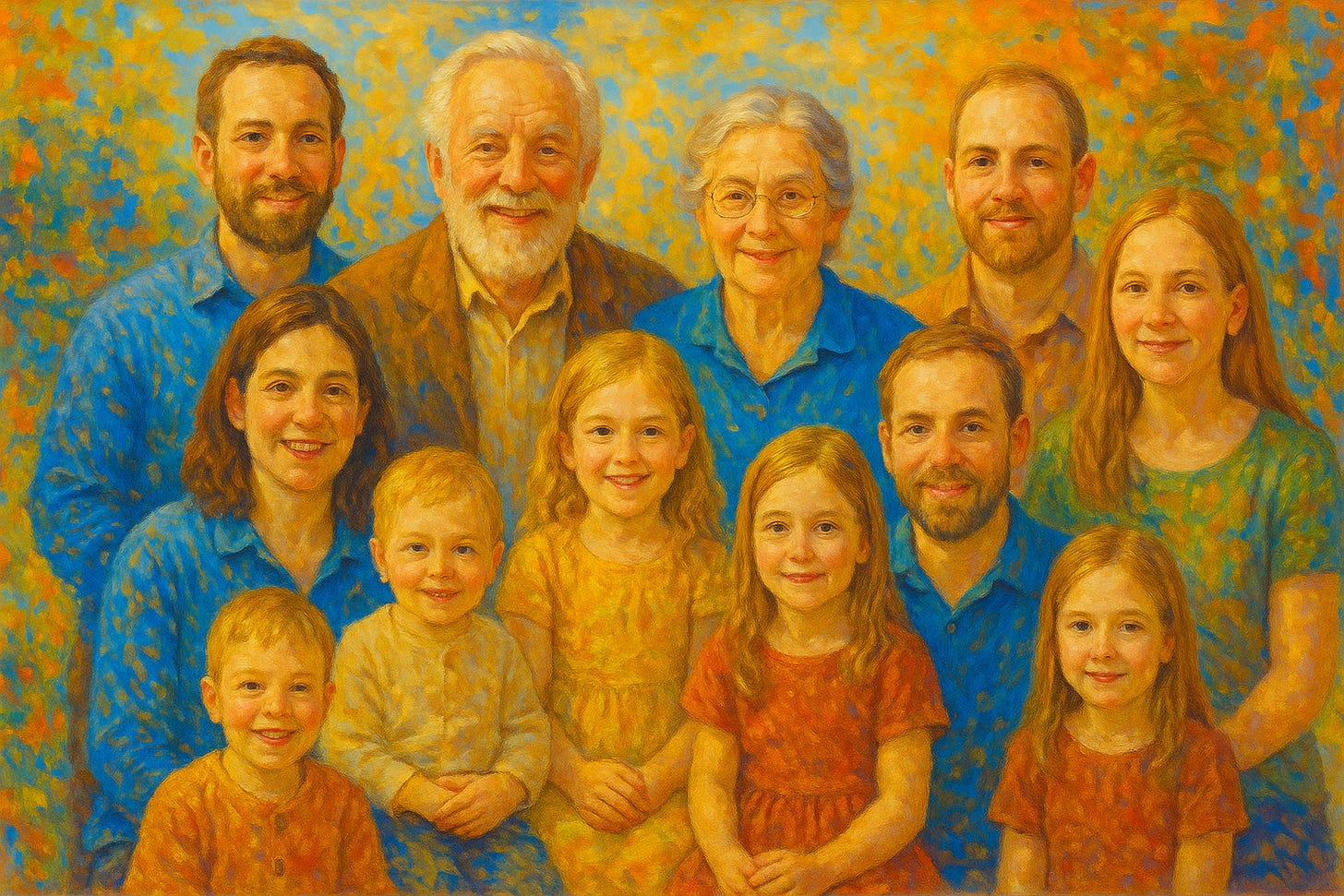If we’re so smart, why can’t we build happy families?
Looking at grandmas for age-old wisdom
Hi, I’m Aastha, and welcome to my world of words. I write about education, human creativity, and any other words I bob my head to. I also write a longevity and health newsletter called Live Longer World.
Humans have figured out how to build Chatgpt, self-driving cars, the iPhone, land on the moon, and a lot more. Yet, somehow our smartness has not been translated to better family lives. 40-50% of marriages in the U.S. end in divorce.
If we’re so smart, why can’t we build happy families? This question has been inspired by Adam Mastroianni’s brilliant blog “Why aren’t smart people happier?”
Since the birth of our daughter, I’ve been spending some time thinking about how to build a happy family. There are no easy playbook answers for me to emulate. Adam’s blog articulates why that’s the case. Problems can be classified into two types: well-defined and poorly-defined. The problem-solving abilities we associate with smartness are typically in the well-defined category.
She’s a doctor. “Smart.” He built a car. “Smart.” He’s ranked #1 in chess. “Smart.”
Contrast this with describing someone who built a large happy family. “She raised 4 happy, well-meaning kids and her husband and her have been married for 50 years and counting. The siblings are close to each other, and now the couple have 4 grandkids with whom they spend a lot of time.”
How do we describe such an act of building a happy, joyful family?
“How loving?” “How cute?” “That’s wonderful?” “Smart” is certainly not how we’d describe it.
But perhaps it deserves to be called smart? It certainly doesn’t seem like an easy feat. When 40-50% of marriages end in divorce1 and ~30% of U.S. adults not wanting kids (double from 20 years ago - 14% in 20032), the failure rate at solving this problem seems high to me. Someone who has figured out a solution ought to be honored as smart at the very least.
Building a happy family falls in the category of poorly-defined problems. It’s so personal to each family that blueprints don’t work. Yes, there might be some generalizable principles, but beyond that there is no tried and tested playbook. Does that mean you can’t learn from anyone and you have to figure it out as you go along? No. These problems are age-old problems, and the best place to look is age-old solutions.
Grandmas who’ve raised happy families likely have the best solutions to offer us. We dismiss grandma wisdom as cutesy stuff that we choose to selectively listen to, and then we wonder why our family lives are a mess. Of course, given that a family is a unit of many people, no one person can determine the outcome. For example, if the husband doesn’t choose to cooperate, the wife will fail at her attempt to build a happy family just by herself. However, like in all groups, the conductor matters. The conductor plays a massive role in enabling the orchestra to perform well.
How does the family conductor build a happy family? I don’t know the answer, but the best direction I have for now is to look towards grandmas and age-old wisdom.
Related:
My guess is that divorce rates in India are lower not just because it’s taboo, but also because people don’t live in nuclear families so much. Large families enable cohesion.
https://www.futurity.org/americans-nonparents-never-want-kids-3277462-2/


